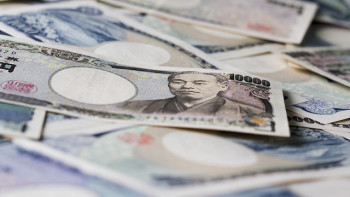By Peter Ward February 12, 2016

Tehran, Iran. © David Stanley
Russian Companies Rush Iran
Russian companies are rushing to get back into business in Iran, following the lifting of international sanctions, The New York Times reported on Monday.
Iran holds the Middle East’s largest oil deposits after Saudi Arabia, and is thought to have the world’s largest reserves of natural gas. The oil and gas sector has struggled all over the world due to low oil prices, but there are plenty of opportunities opening in Iran, a country just emerging from crippling international sanctions.
UN sanctions were lifted in January after Iran agreed to open its nuclear program to more inspections and to send enriched uranium to Russia. However, the U.S. still prohibits most commercial ties, meaning American companies cannot bid for oil and gas contracts in the country. This means European countries are much better positioned to win deals in Iran.
In July, Germany’s vice Chancellor travelled to Iran with a delegation of executives from his country’s largest companies, including the likes of Volkswagen, Siemens and Daimler. But Russian companies have an advantage, according to The Times article, due to the Russian government’s lengthy backing of Iran diplomatically and deep military ties between the two countries, which means business relationships already exist.
Russia has already agreed to provide S-300 anti-aircraft missiles to Iran and future deals are not expected to be limited to defense. In the oil and gas industry, Iran is expected to spend as much as $100 billion rebuilding its pipeline, according to analysts.
American Pharoah’s $200k-a-Night Career

American Pharaoh. © Diana Robinson
Champion horses make millions for their owners while they’re racing and enjoy the kind of fame most professional sports players can only envy. Even after their racing careers are over the money continues rolling in, as horse breeders pay hundreds of thousands of dollars to have the champions mate with their mares.
Bloomberg’s Businessweek published a feature this week taking an extensive look into the horse breeding business, and in particular the world’s fastest horse’s future career as $200,000-a-night stud.
American Pharoah shot to fame as he won the Triple Crown, American horse racing’s three biggest races, in 2015. Now the horse has retired and commands the highest ever stud fee for an unproven first year stallion.
The article breaks down what is an oddly complicated industry. There are rules on how the mating should occur, and complications can arise at every step of the process.
Reporter Monte Reel walks us through the story of American Pharoah, probably America’s most famous horse and the complicated business of horse breeding. He provides plenty of numbers, such as typical stud fees today. But it’s never clear what kind of profits are made or by whom in the horse breeding business.
Have You Got Skills?

Harvard Business School. ©Louis
Do business school graduates have what managers want? Bloomberg set out to explore that question with a giant data interactive this week: its Job Skills Report reveals the skills most valued by managers, and which business schools are churning out graduates that have them.
To create the data set, Bloomberg surveyed 1,251 job recruiters at 547 companies. The results shows that there are a number of skills managers really want that are in scarce supply, and a bunch of skills lots of graduates have that managers aren’t seeking. Readers can sort the results by industry. It turns out communication skills, strategic thinking and leadership skills are in highest demand across all industries.
Bloomberg also broke down how recruiters ranked each MBA program according to how well their graduates have mastered particular skills, which can also be sorted by industry.
Japan’s Negative Bond Yield Explained

Yen bills. © Japanexperterna.se
Investors are now paying to lend money to the Japanese government, after the yield on 10-year bonds fell below zero on Tuesday.
In an effort to stimulate the Japanese economy, the country’s central bank, the Bank of Japan, introduced negative interest rates on January 29. Banks keep their unused money in the central bank, and usually earn interest on that money. However, negative interest rates means banks are paying the central bank to store cash. The goal is to encourage banks to lend their money more freely, rather than hold cash in the central bank and pay for the privilege. This, theoretically, will make loans more accessible and coax businesses and households to spend more.
Negative interest rates on bank reserves don’t kick in until next week, yet the reversal of bond yields has already happened because global investors have rushed to buy the Japanese currency, the yen. That rush has also severely hindered the government’s attempts to stimulate the economy.
The yen is seen as a safe haven for investors at times of global turmoil, and as investment has flooded in, the strength of the currency has grown to 114 to the dollar, 10% stronger than its most recent low. On Tuesday, the Japanese stock market the Nikkei’s 225-stock average dropped 5.4%, its biggest decline since May 2013. That fall was due to investor concern for the major companies in Japan that rely on business outside of the country, which will suffer from the strong yen. A strong yen hits the foreign-currency earnings and profits of companies.
Economists, such as David Blanchflower, professor of economics at Dartmouth and a former member of the Bank of England’s Monetary Policy Committee, interviewed by NPR, believe Japan has left itself with no weapons to combat further economic woes, but the country is not the first to impose negative interest rates. Several wealthy countries such as Switzerland, Denmark and Sweden have experimented by pushing interest rates below zero. The goal is to lower the strength of the currency and make exports more competitive.
In Japan’s case, negative interest rates could address challenges posed by the decision to raise the consumption tax from 5% to 8% in April 2014, which negatively affected consumer spending. Prime Minister Shinzo Abe hopes the below zero interest rate will push savers to spend their money in the real economy.
This Week’s Top Ten Headlines
Morgan Stanley to pay $3.2bn over mortgage-backed securities – Jana Kasperkevic, The Guardian
Marc Andreessen Apologizes After Facebook Disavows India Comments – Mike Isaac, The New York Times
Google boss becomes highest-paid in US – BBC
Goldman Sachs Abandons Five of Six ‘Top Trade’ Calls for 2016 – Rachel Evans and Andrea Wong, Bloomberg
Twitter’s Most Important Report Card Yet Disappoints – Alex Kantrowitz, Buzzfeed News
European banks face major cash crunch – Jon Marino and Seema Mody, CNBC
Coke Results Top Expectations on Volume, Pricing Growth – Mike Esterl, The Wall Street Journal
Disney Delivers Record Quarterly Profit On Star Wars Success – Lauren Gensler, Forbes
Yellen Flags Risks to Economic Outlook That Could Delay Rate Increases – Jon Hilsenrath and Ben Leubsdorf, The Wall Street Journal
Myspace was just acquired by 94-year-old magazine company Time – Lara O’Reilly, Business Insider
This entry was posted on Friday, February 12th, 2016 at 9:28 pm. It is filed under Week in Review. You can follow any responses to this entry through the RSS 2.0 feed.
Comments are closed.
